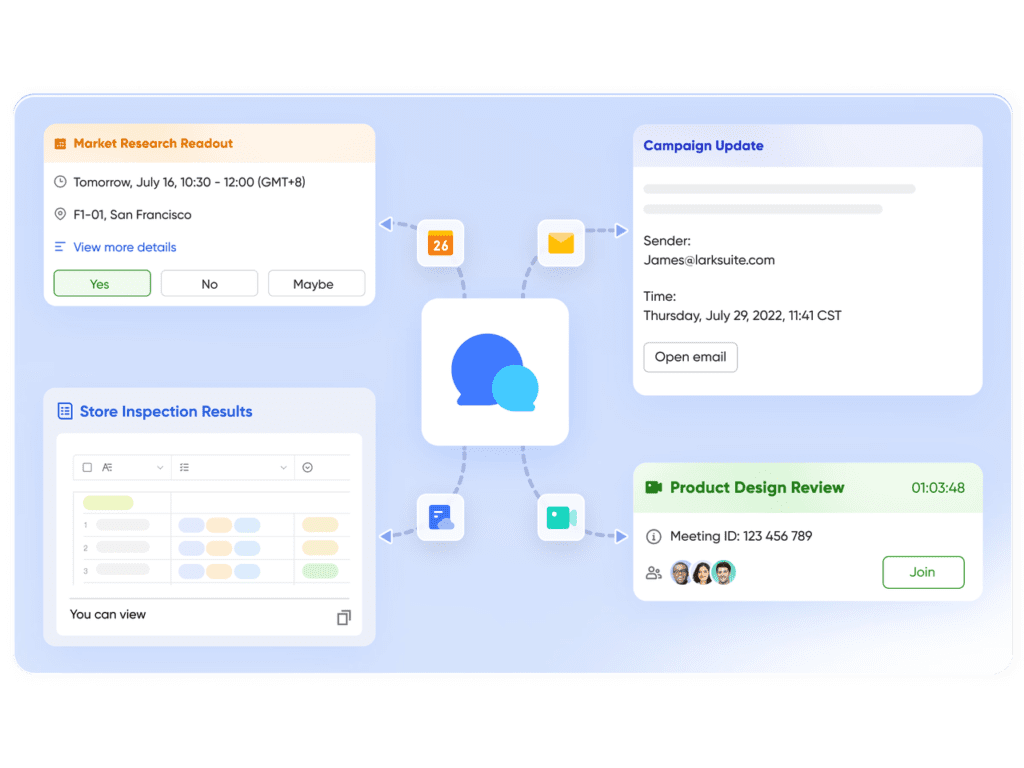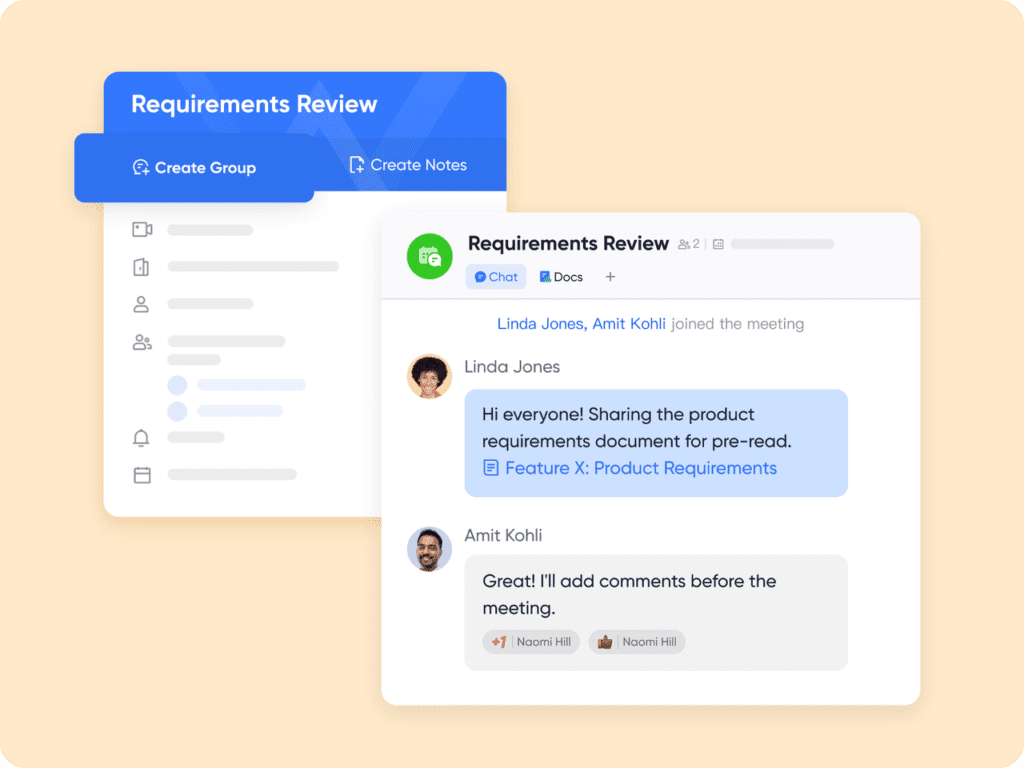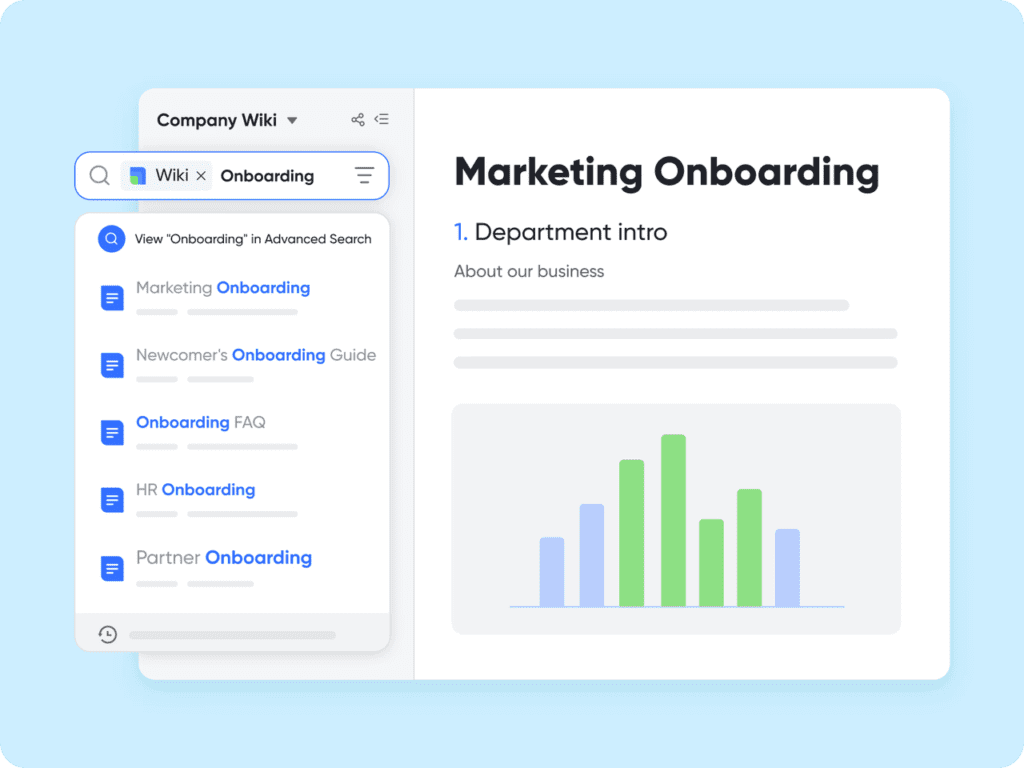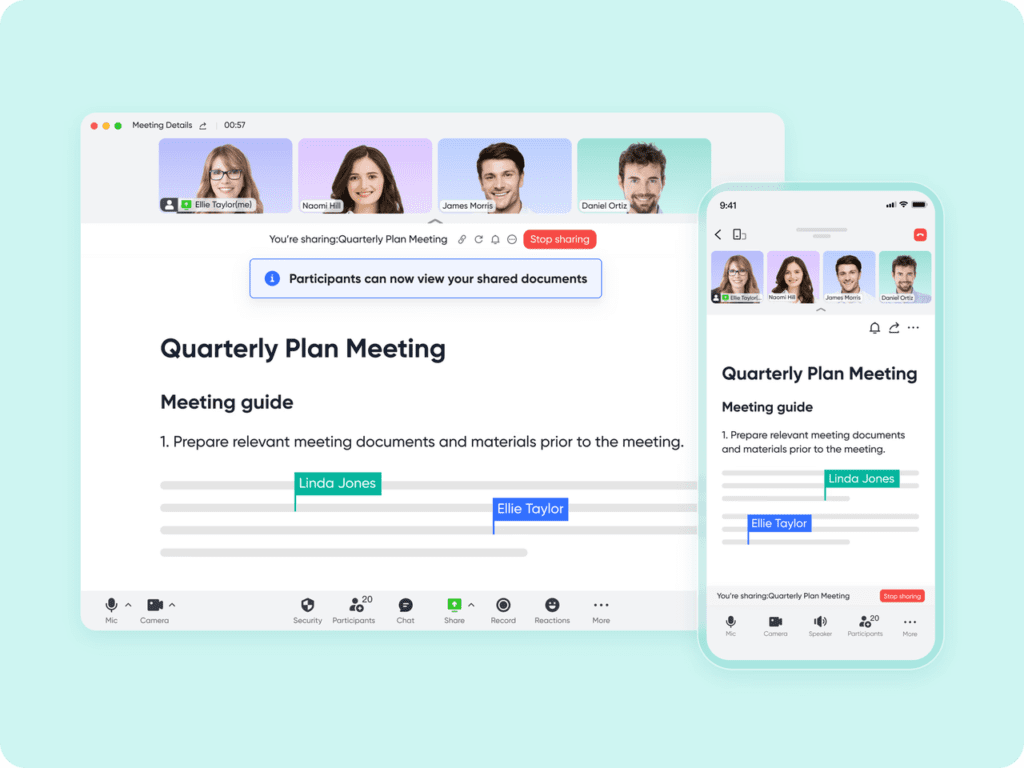Running a store is tough. You’re juggling stock, people, deals, and keeping customers happy—often all at once. Now that online and offline shopping are mixed, it’s even harder. Just one small problem can turn into lost sales or angry customers.
The best stores are the ones that have their act together behind the scenes. They set up systems that make sure deals start on time, employees know what to do, and they always know what’s in stock. That’s why many store managers pick the best project management tools that put communication, schedules, documents, and operations all in one spot. Lark is one of these tools, helping stores stay on top of things without slowing down. Wonder how it stands out? Let’s dive in and see where it make a difference.
Keeping staff aligned with Lark Messenger

In retail, everyone’s always talking to each other. Store managers give updates to cashiers, headquarters tell teams about deals, and suppliers confirm when things will arrive. When these updates are all over the place in emails or chats, mistakes are bound to happen.
Lark Messenger puts all this talking in one spot. Stores can have their own chat groups, and headquarters can send updates straight to the right groups. Replies stay organized in threads, so important questions don’t get lost. Things like new signs or training stuff can be put in chats where everyone can easily find them.
Think about a big store getting ready for a weekend sale. Instead of calling all the managers, headquarters just posts the new price lists in Lark Messenger. Managers see them right away, react to show they got them, and tell their staff. The sale info goes out in hours instead of days, so every store is on the same page.
Scheduling promotions and staff with Lark Calendar

Getting retail right is often about timing. If your campaign starts too late, you lose sales. If you don’t schedule staff well, customers get bad service. Lark Calendar is a good way for stores to handle both promos and staff schedules in one spot.
Teams can make shared calendars for campaigns, deliveries, or staffing. When tasks are made in Lark, they pop up in Lark Calendar, so deadlines for things like displays, ad buys, or training are right there with meetings. Permission settings let managers control what staff sees, keeping some info private but schedules clear.
For example, a sportswear store planning a holiday push can have marketing put campaign dates in Lark Calendar, while managers add staff schedules. Leaders can see it all together, so there are no staffing problems when promotions start. That way, promotions go smoothly, with enough workers to handle the rush.
Capturing retail know-how with Lark Wiki

Retail teams need to be on the same page, all the time. Whether it’s processing returns or putting up holiday decorations, employees need crystal clear directions. If all that info is just stuck in training or lost in emails, things are going to go wrong, a lot.
That’s where Lark Wiki comes in—think of it as the go-to guide for how your store runs. You can put all your rules, how-tos, and guides into easy-to-find pages that everyone can get to. New employees will pick things up faster, and your veterans will have a place to double-check stuff when they’re not sure.
Let’s say you’re a bookstore chain. You could put your return policy and what to say to customers in the Lark Wiki. Doesn’t matter if someone’s working in New York or Dallas, they’re looking at the same info and giving customers the same quality of service. Over time, your Lark Wiki turns into a treasure chest of knowledge that keeps your stores running smoothly, no matter what.
Managing campaigns and inventory with Lark Base
Retail operations are complex. Inventory needs to be tracked, promotions coordinated, and vendor deadlines met. Spreadsheets may work temporarily, but they quickly become unmanageable. Lark Base gives retailers the flexibility to design workflows that scale.
Teams can build tables to track stock levels, campaign milestones, or vendor contracts. Filters allow quick insights, like identifying products running low across regions. Views can be customized to show progress by store, campaign, or product category.
Automations inside Base reduce manual work. A product falling below a set inventory threshold can trigger a Messenger alert for the supply team. A campaign marked as ready can automatically generate a task for the marketing calendar. In this way, Lark comes as your smart business process management software, helping retailers prevent issues before they reach the customer.
Picture a home goods retailer running a summer clearance. As items sell quickly, Base highlights which products are almost out of stock. Automated alerts notify procurement immediately, ensuring popular items are restocked before shelves go empty. This proactive system helps sales run without interruptions.
Creating campaign materials with Lark Docs
Promotions usually involve different teams – like marketing, merchandise, and store staff – all working on materials together. When these documents are passed around through endless emails, things get messy and slow. Lark Docs fixes this by letting everyone work together at the same time.
Designers can drop in pictures, writers can work on the ad copy, and managers can leave comments, all in the same doc. Version history tracks every change, and you can set permissions so only certain people can make edits.
For example, say you’re getting signs ready for a back-to-school sale. The marketing team can make the poster in Docs, store managers can comment on the layout for smaller stores, and the bosses can sign off right away. Everyone’s working on the same file, which speeds things up and cuts down on expensive printing errors.
Turning meetings into action with Lark Meetings

Running a retail business means always juggling a lot of things – talking to suppliers, keeping store managers in the loop, and checking on how campaigns are doing. The hard part is making sure those talks turn into real action. Lark Meetings can help since it takes AI meeting notes for you and saves them in Docs. Plus, you can share recordings in Messenger.
This way, when you decide things like changing delivery times or saying yes to campaign budgets, it’s all written down and easy to find. People don’t have to just remember stuff or hunt through random notes.
Say, for example, managers decide to change when some seasonal stuff gets delivered during a call with a supplier. Lark Meetings can catch that update and share it with the folks in charge of logistics. That way, everyone knows what’s going on, and you don’t end up with mix-ups that mess up your shelves.
Conclusion
Retail is fast-paced, and customers expect nothing less than flawless execution. By using Lark Messenger, Calendar, Wiki, Docs, Base with Automations, and Meetings, retailers gain the systems needed to stay organized, efficient, and responsive.
Beyond internal operations, customer relationships also define success. Strong loyalty programs, personalized service, and consistent follow-ups are all easier when supported by the right tools. In competitive markets, no toolkit is complete without a reliable CRM app. Pairing this with disciplined internal systems ensures retailers deliver excellence to customers at every touchpoint.
With the right foundation, retail operations never miss a beat — no matter how many stores, promotions, or customers they manage.

![business_startup-is-easier-than-you-think_220K[1]](https://media.galwaydaily.com/wp-content/uploads/2015/12/20233344/business_startup-is-easier-than-you-think_220K1-696x464.jpg)











